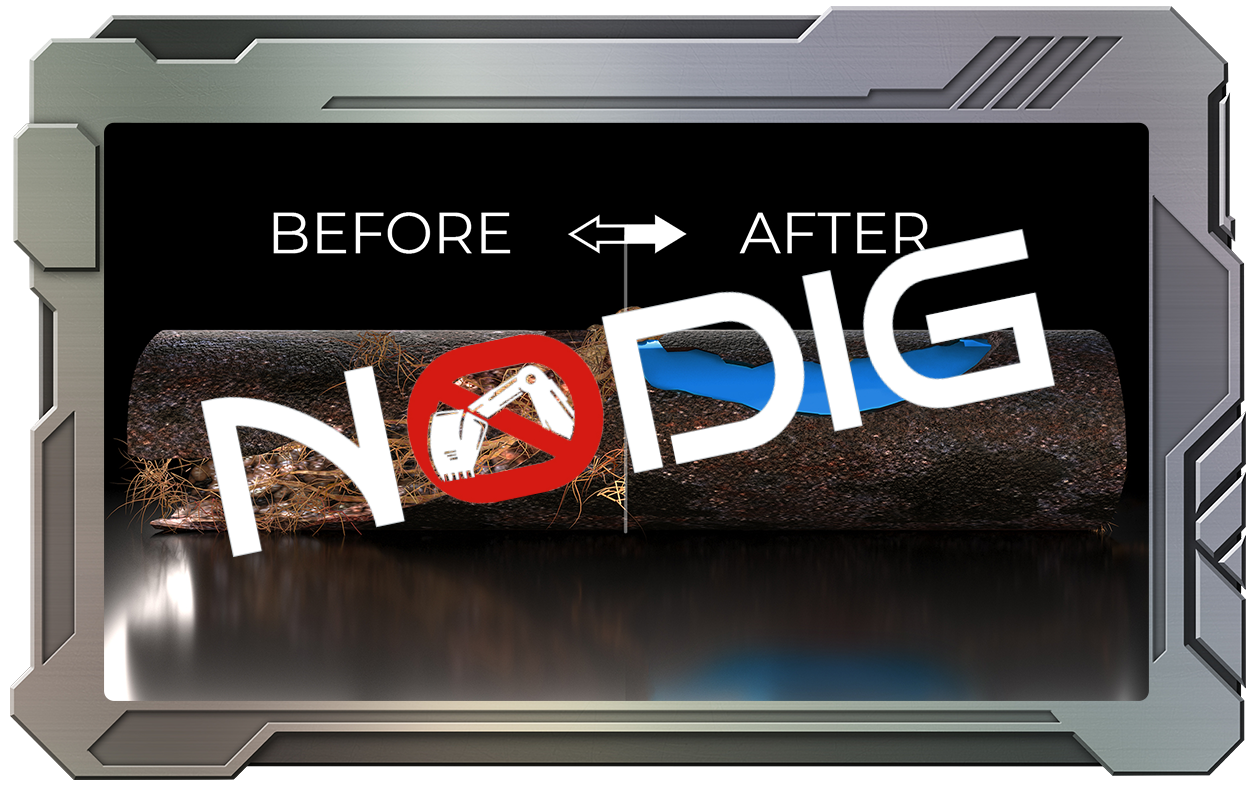A tree can grow an extensive root system that can penetrate into your sewer line or septic tank.
If this is a problem, a homemade root killer consisting of a combination of vinegar, baking soda, and salt solution can kill tree roots.
Vinegar is a highly acidic solution you can use as an effective root killer.
This article will explain more about why it can kill tree roots in sewer lines.
Why Is Vinegar Effective Against Tree Roots?
Vinegar contains 4% to 8% acetic acid by volume.
Acetic acid is a byproduct of fermentation. At 99.5% concentration, it can be used as a solvent in producing other chemicals.
Although vinegar only has a small concentration of acetic acid, it's acidic enough to burn through tree roots and leaves.
PRO TIP: If you want to use vinegar to kill tree roots, but don't want to kill other plants on your property, you can drench that garden area first.
How to Make a Homemade Root Killer With Vinegar?
Among the different types of vinegar, white vinegar is the MOST effective at damaging tree roots.
Undiluted white vinegar is the best eco-friendly tree root killer to get rid of invasive tree roots.
It's readily available in your home and completely organic, so you don't need to worry about handling dangerous chemicals.
Another alternative vinegar solution is a foaming root killer. Here's how to make it:
- Step 1: Get equal parts vinegar, baking soda, regular table salt, and hot water.
- Step 2: Mix all three ingredients OR pour the baking soda into the toilet bowl first, then promptly add the rest.
- Step 3: Pour the foaming tree root killer mixture into the toilet bowl.
- Step 4: Immediately flush before the fizz dies down. Make sure you flush it down the LOWEST toilet in the house.
You can expect some fizzing action in your pipes after you pour the foaming root killer. The table salt will attack the tree roots first.
You can place the solution in a spray bottle and spray it on the toilet or tree stump until the roots die.
Do note that you won't see immediate results because dead roots take some time to flush away.
This mixture can clear out your clogged drains, but you may still need to consult professional plumbers to check if there is severe damage to your sewer line.
Why Do Tree Roots Develop in Your Sewer Line?

The main reason why trees invade sewer lines is that they are naturally attracted to water sources.
Trees NEED water for survival. Unfortunately, trees sometimes find your sewer pipe to be the nutritious meal they need.
The flow of water from the pipes causes water vapor to escape into the soil.
Tree roots grow towards the source of the water vapor and puncture your sewer pipes to get to the nutrient-rich water inside.
Usually, invasive root growth happens when older sewer lines wear down, which results in loose joints. It can turn into a small opening where a tree root can enter.
Different Signs You Have Tree Roots in Your Sewer Line

Sewer lines are underground, so how would you know if you have roots growing in your pipes?
Let's look at the signs that your sewer line has a root problem:
Drain Clogs
Slow-running toilets and sinks are tell-tale signs that there are tree roots invading your drain line.
Grease can block your entire pipe — but so can tree roots. This blockage causes the water drainage to slow down considerably.
Clogged drains are major concerns that affect the functionality of a house.
As such, finding out an effective root killer for sewer lines is KEY to keeping your home in top shape.
Puddles/Flooded Parts on Your Lawn
Another red flag that can indicate root problems is sewage backups. It can manifest as puddles or flooded areas on your lawn.
You might notice the grass around a certain area to be greener than nearby plants as well.
Severe root damage affecting the entire pipe can cause water leakage — and excessive water leakage will eventually lead to sinkholes developing in your yard.
At this stage, a homemade root killer for sewer lines may NOT be enough.
You'll need professional plumbers to bring out the most effective chemicals to get rid of invasive tree roots.
Unpleasant Smell in Your Sewer
A damaged sewer line can also lead to foul odors both inside AND outside the house.
Tree roots growing into your septic system will trap the wastewater from flowing into the public main system.
This blockage can lead to unpleasant smells, particularly near plumbing fixtures. The odors will keep getting worse if left unchecked.
Watch out for a rotten egg smell or other foul odors around different areas in your home. It can be a sign of a problem that needs a root killer for sewer lines.
What Happens if You Have Tree Roots in Your Sewer Line?
If you fail to get rid of invasive roots, it could SEVERELY disrupt the functioning of your home. Severe sewer damage may even require you to replace your whole sewer line.
See how trees can affect your sewer line below:
Broken Pipes
Sewer lines deteriorate with age. Older sewer pipes are often made from weaker materials like clay.
These conditions tend to make the pipes prone to cracks and joint failure.
Combined with roots growing inside the sewer line, it can lead to broken pipes.
A damaged pipe or septic tank can cause clogged and slow drains that back up sewage in your plumbing.
Yard Sinkhole
As previously mentioned, a root problem can result in excessive water leakage.
Puddles or flooded areas in your lawn create soft spots that sink down into the ground.
A sinkhole in your yard poses a RISK to your home's foundation. If you notice certain parts in your yard sinking, contact a professional for urgent sewer line repair.
Frequently Asked Questions
We've answered how does vinegar kill tree roots. It's a great homemade root killer that can kill tree stumps and roots.
Below are related questions on how vinegar can kill tree roots and more:
Adding baking soda to your vinegar solution activates it and causes a foaming action. This mixture dissolves the roots growing inside your sewer pipe.
That's because baking soda contains sodium, which is poisonous to plants. Putting enough sodium on a plant can effectively kill the tree stump and roots.
Besides vinegar, there are other methods to eliminate invasive trees:
Rock Salt
Rock salt is a chemical compound that acts on contact to kill roots.
You can flush rock salt in the toilet to kill any roots inside the pipe and prevent new roots from clogging it further.
It's also a readily available ingredient too. You can get rock salt at any local hardware store.
Epsom Salt
Other than footbaths, Epsom salt can also be used for gardening.
You can use it to condition the soil or eliminate tree stumps in your yard.
A tree stump still has a root system underground. An Epsom salt solution can rot the tree and its roots from further damaging your sewer line.
Copper Sulfate or Sodium Chloride
Copper sulfate is another COMMON root killer for sewer problems.
It's also fairly easy to apply to sewer lines. You can simply flush 2 lbs. of copper sulfate alongside boiling water and wait for the chemicals to take effect.
Set Up Root Barriers
Given how expensive sewer repairs are, prevention can save you a lot in the long run. As such, you can also delay roots from reaching your sewer lines using root barriers.
Ideally, barriers should be placed between the foundation and the adjacent trees to prevent extensive root growth.
Know how deep your sewer line is to find out how you can set up barriers.
A tree stump means there are still invasive roots in your sewer line.
You can drill into the trunk and fill it with herbicides. Building a compost pile on top of the stump can accelerate the decay too.
Afterward, you can even turn the stump into a flower container.
Conclusion
When it comes to sewer line issues, you need to address the problems at the root.
Vinegar is an all-natural root killer for sewer lines that you can use to control invasive roots.
Although the most effective chemicals for killing roots should be left to the pros, you can make your own root killer using readily available materials in your home.
It's great to be listed on NoDig
-
Join a network of verified sewer repair specialists
-
Get recognized
-
Update your business information
Unlock your listing in minutes.






